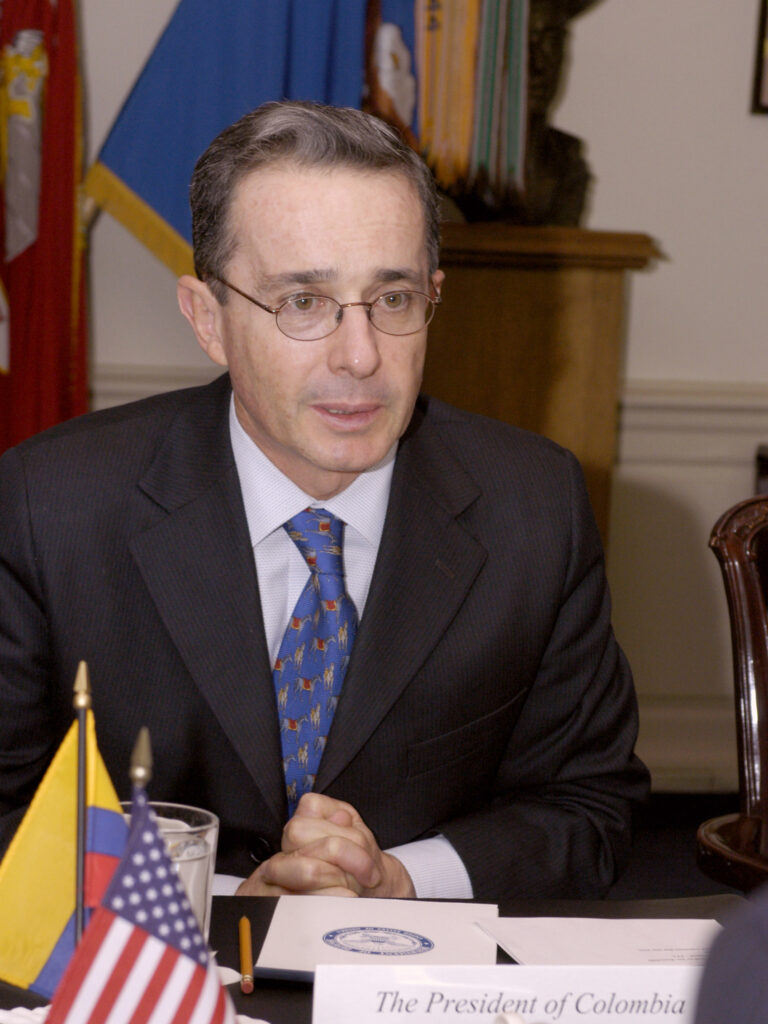The Washington Times published an op-ed yesterday that I co-authored with Shannon O’Neil. It originally appeared here and I am including the entire text below.
The Washington Times
Monday, December 1, 2008
O’NEIL/CHASKEL: Pass FTA and amend Plan Colombia
Shannon O’Neil and Sebastian Chaskel

Two years ago President Bush and Colombian President Alvaro Uribe negotiated a free trade agreement (FTA). Yet when Barack Obama steps into the White House in January, it will still await congressional ratification.
Experts agree that both countries will benefit from the pact – Colombia by attracting investment and the United States by reducing tariffs on its Colombia-bound exports. As a senator and presidential candidate, Mr. Obama opposed the FTA for non-economic reasons, arguing along with House Speaker Nancy Pelosi that as long as Colombia maintains a dismal human-rights record Congress should not review the agreement. During the last campaign debate, Mr. Obama stated that Colombian “labor leaders have been targeted for assassination on a fairly consistent basis, and there have not been prosecutions.”
While true, withholding the FTA will not solve this situation. Instead, the United States can improve Colombia’s human-rights situation by bolstering economic opportunities through the FTA and more importantly by strengthening Colombia’s courts through Plan Colombia, the multi-billion dollar aid program to fight drug production and insecurity in Colombia.
Colombia has made great strides in the last decade, reducing the violence tied to the drug trade from a threat to the state itself to a serious law enforcement problem. Yet even though Colombians are now safer, political killings continue.
In 2007 at least 39 trade unionists were murdered. This year 41 have died, comprising about half of the assassinated union leaders worldwide. Perhaps more important is that impunity remains rampant. Of the nearly 500 union murders during Mr. Uribe’s presidency, only 14 perpetrators have been brought to justice. The latest news, that members of the armed forces kidnapped poor civilians and presented them as combat deaths, is one more gruesome reminder of the lack of accountability and widespread impunity enjoyed by human rights violators.
President Uribe reacted to this most recent scandal by purging the military. But he tellingly said that human-rights scandals “make us look bad,” as if the problem were simply one of perception. He also called a representative of Human Rights Watch, an organization that helped uncover the violations, an “accomplice of the FARC,” Colombia’s largest guerrilla group. These actions suggest that the Colombian government is more concerned with wooing American congressional representatives than with stopping human-rights violations.
Yet the lack of presidential will is not the only problem.
Just as detrimental is the weak capacity of Colombia’s judiciary, the branch responsible for investigating human-rights violations and prosecuting its perpetrators. Since 2006 the Colombian attorney general has valiantly tried to prioritize the top 200 union-leader cases, out of the backlog of some 2,600 assaults. But his two-plus years of work garnered only five convictions. This lack of progress shows that without strengthening Colombia’s court system, human rights will continue to suffer.
Withholding the FTA will not improve the courts’ capacity, but redirecting U.S. aid to Colombia could. As it stands, the United States gives Colombia $600 million a year to fight the drug trade. Starting in 1999, when the government was nearly toppled by drug dealers, this aid provided armament and military training, and was a key element in Colombia’s success against the drug lords. Recognizing the new, safer situation, in 2007 the Democratic Congress decreased Plan Colombia’s military component somewhat. But the aid package remains lopsided, funding predominantly military programs while largely excluding support for the country’s democratic institutions.
Nine years into Plan Colombia the country’s new Achilles heel is its civil governance, particularly its judicial branch. Using Plan Colombia to support the work of the country’s attorney general, inspector general, and ombudsman, and tying that aid to benchmark reductions in impunity, could, unlike withholding the FTA, improve human rights.
Combined with a revamped Plan Colombia, the FTA can then promote both human rights and the overall quality of life in Colombia. One of the loudest proponents for the FTA is Asocolflores, Colombia’s flower exporters association. Dependent on the U.S. market, its companies employ 200,000 Colombians. This and other export industries create jobs and opportunities that provide poor Colombians alternatives to growing coca, the plant used to make cocaine.
Real change will not come from bulletproof armor, helicopters, and tanks, but will depend on Colombia’s institutional capabilities and the economic opportunities it can offer its citizens. The United States should focus Plan Colombia on improving justice and human rights, and pass the FTA to improve economic opportunities for both countries’ citizens. President-elect Obama’s campaign promised change; our regional partners could use some, too.

Reply